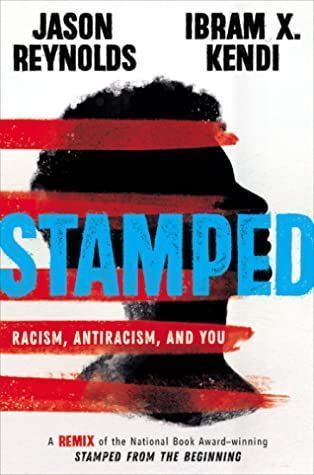
Stamped: Racism, Antiracism, and You A Remix of the National Book Award-winning Stamped from the Beginning
A timely, crucial, and empowering exploration of racism--and antiracism--in America This is NOT a history book. This is a book about the here and now. A book to help us better understand why we are where we are. A book about race. The construct of race has always been used to gain and keep power, to create dynamics that separate and silence. This remarkable reimagining of Dr. Ibram X. Kendi's National Book Award-winning Stamped from the Beginning reveals the history of racist ideas in America, and inspires hope for an antiracist future. It takes you on a race journey from then to now, shows you why we feel how we feel, and why the poison of racism lingers. It also proves that while racist ideas have always been easy to fabricate and distribute, they can also be discredited. Through a gripping, fast-paced, and energizing narrative written by beloved award-winner Jason Reynolds, this book shines a light on the many insidious forms of racist ideas--and on ways readers can identify and stamp out racist thoughts in their daily lives.
Reviews
Andrea Morales@matchandrea
Hannah Yoon@yoonreads
Joy Bush@aische
claire law@clairelaw
Ryan LaFerney@ryantlaferney
Elyssa Parker@parkereg
Tracie McMurray@mrs_mcmurray
Kim Tyo-Dickerson@kimtyodickerson
Jeff Brown @jeffb23
Sahi K@sahibooknerd
Samirah Arif@violetsandprimroses
Melissa Deitrick@melissadeitrick
Yoomi@angryasiangirlreads
Lauren Lopez@laurenfb
Julia@aju
Jeni Enjaian@jenienjaian
Cindy@cindypepper
Taylor McNeely@taylorcatherinemareads
Kim@kimberlyfayereads
Daryl Houston@dllh
Dani@erudani
Megan Weber@meganw2
Asha Sidhu@asidhu
Elise Harris@elise95